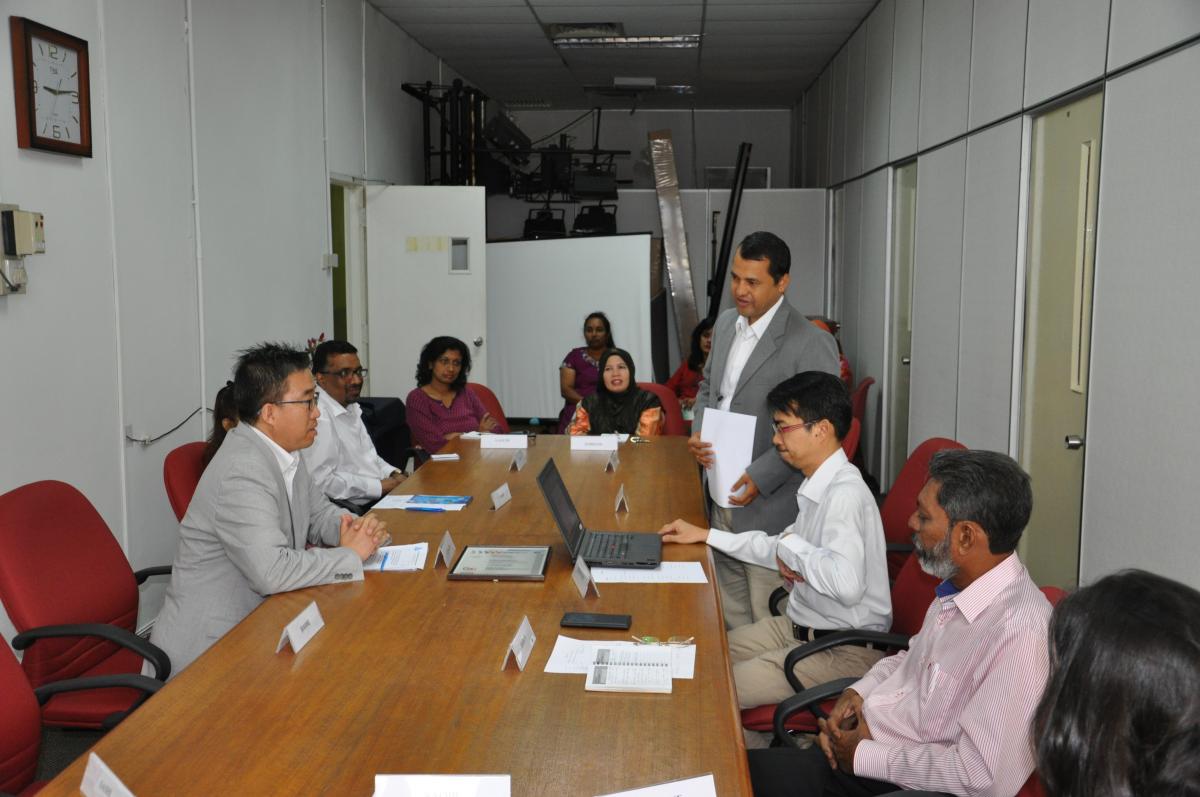The URTI organises, with the support of UNESCO and the entirety of the international audiovisual organisations, the International Grand Prix for Author’s Documentary.
The URTI organises, with the support of UNESCO and the entirety of the international audiovisual organisations, the International Grand Prix for Author’s Documentary.
In television, the International URTI Grand Prix for Author’s Documentary enjoys a great renown thanks to a strong participation and to the quality of the programmes accepted in competition.
Four prizes will be given, among which the URTI Grand Prix (Arman Trophy) awarded to the director of the best documentary with a 500 dollar reward.
Each television channel can register for free one or two documentaries. The rules and the registration form can be obtained by simple request addressed to: [email protected]
Deadline for sending entries: Sunday, May 1st 2016.
35th International URTI Grand Prix – Call for Entries
The URTI organises, with the support of UNESCO and the entirety of the international audiovisual organisations, the International Grand Prix for Author’s Documentary.
Fiji Cyclone
VERY IMPORTANT MESSAGE FROM FIJI BROADCASTING CORPORATION (FBC)AIBD WOULD LIKE
Let’s warm up and celebrate World Radio Day 13 February 2016
ISO re – certification audit for AIBD
AIBD is to be recertified this year for ISO 9001:2008 and ISAS BCP 9001:2010. The re-certification external audit was conducted at AIBD from 27 to 28 August 2015. Mr Eddie Fuad from SGS Sdn. Bhd. Systems & Services conducted the audit.
AIBD’s New Initiatives in 2015-16
The14th AIBD General Conference recently approved three AIBD projects that will beef up the capability of the Institute’s workforce, improve current services to members, and expand memberships to new media industries.
The first project is a new initiative called AIBD Annual Media Research (AAMR) that will provide basic data collection and preliminary analysis subject to further deliberation from resource persons and speakers during the Summit.
It seeks collaboration with some 24 training and research institutions of member countries as well as international partners.
AIBD Eyes More Quality In-Country Training Workshops
Mr Chang Jin, AIBD Director, says the Institute is eyeing more quality training and in-country workshops in its bid to offer better services to members and attract new members.
During the last 12 months, Director Chang Jin reported to the AIBD Executive Board that the Institute implemented 27 training activities benefitting close to 700 broadcasters from 46 countries and regions.
These activities covered various fields such as new media and social media, management, children/gender/youth, digitisation, production and training of trainers, among others.
China and Iran Host 2 Key AIBD Events
China and Iran have accepted to host two important AIBD activities taking place in 2016 and 2017.
The State Administration of Press, Publications, Radio, Film and TV, China (SAPPRFT) has tentatively decided to host the Asia Media Summit in 2017, likely to be held outside Beijing.
However, it will need final approval from China’s central government before preparations for the Summit can begin.
This will be the third time China will host the AMS, the first happened in Macau and the second in Beijing in 2010.
AIBD Supports More Women Participation in Media
UNESCO has urged broadcasters to put more focus on allowing greater women participation in media and on ensuring the safety of working journalists in Asia-Pacific.
A 2015 study by UNESCO, International Federation of Journalists and UN Woman shows that only 28% of women belong to the media workforce and much less at the decision-making level in the region.
On safety of journalists, UNESCO data indicates that a working journalist is killed every week and 90% of the crime is left unpunished.
AIBD’s Annual Performance Report
AIBD has successfully implemented its programme activities and initiatives during the last 12 months, notably the Asia Media Summit 2015 in Kuala Lumpur and the 27 training activities benefitting close to 700 broadcasters from 46 countries and regions in Asia-Pacific and beyond.
It has also pursued close collaboration with governments, international, regional and national broadcasting organisations, among them, the Tun Abdul Razak Broadcasting Information Institute of Malaysia (IPPTAR), Arab States Broadcasting Union (ASBU), Norwegian Broadcasting Corporation, ITU, ABU, EBU, CCTV and FES.
Catching Up with Trends and Changes in the Broadcast Landscape
Broadcast organisations need to catch up with trends in the fast-changing media landscape to be able to better serve its modern audiences, particularly young consumers of old and new media.
They must also pay special attention to their corporate social responsibility in educating their audiences, and promoting media ethics and media literacy in today’s digital world.


